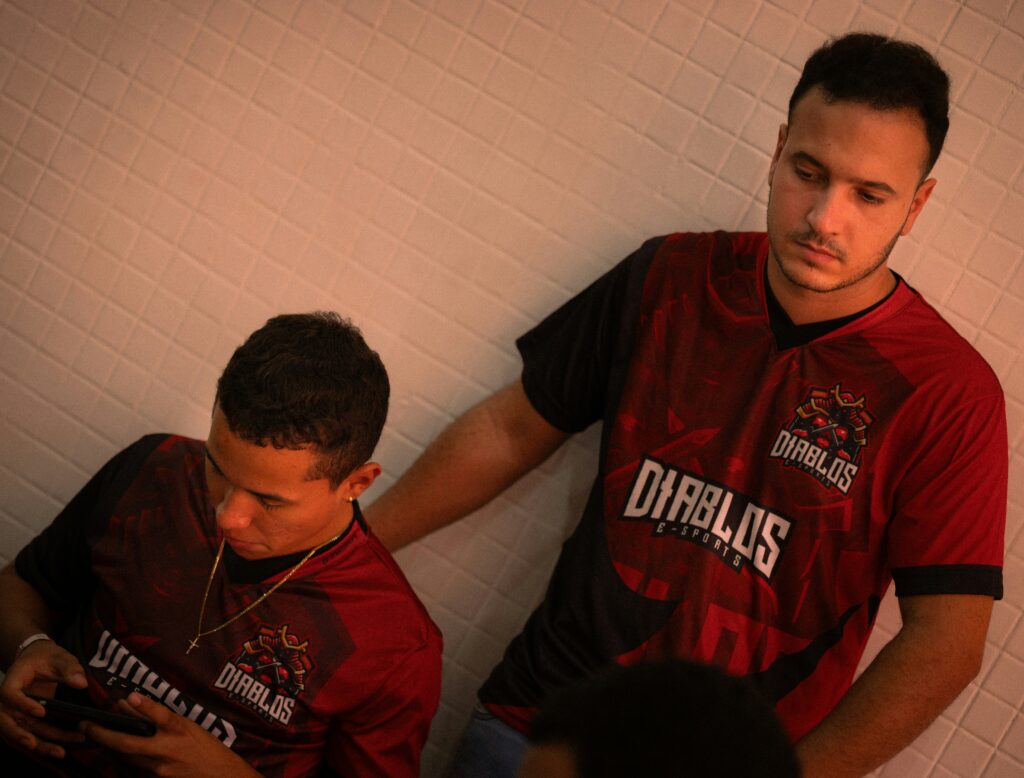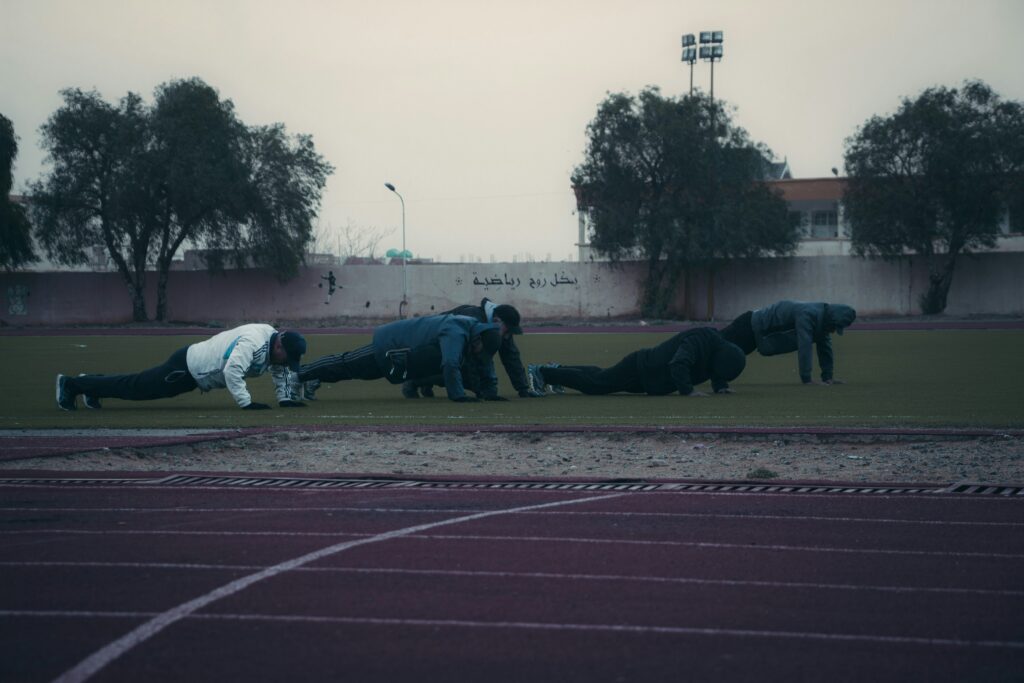Building a High-Performance Team Culture
Creating a strong, productive team starts from the inside out. It’s not only about talent—it’s about structure, expectations, and the daily habits that shape team behavior.
Focus on Culture First
To achieve long-term success, team culture must prioritize discipline and focus. This doesn’t mean rigidity. It means creating an environment where everyone understands expectations and is committed to the team’s shared goals.
Key elements include:
- Clear performance standards and processes
- Consistent reinforcement of team values
- Open communication during both high and low moments
Accountability and Mutual Trust
A disciplined team thrives on mutual respect. Leaders should empower team members to hold each other accountable, not through blame, but through ownership.
Strategies to strengthen accountability:
- Define roles and responsibilities with clarity
- Check in through regular feedback loops
- Celebrate follow-through, not just big wins
When trust is built into daily operations, feedback is seen as a tool for growth rather than criticism.
Managing Egos, Pressure, and Expectations
Team environments can be fragile under pressure. High-stakes settings often amplify individual egos and unmet expectations. Managing this requires emotional intelligence and proactive leadership.
Tactics to navigate team dynamics:
- Set clear boundaries for behavior early
- Address tension quickly, before it festers
- Coach individuals privately while reinforcing unity publicly
Ultimately, teams that rise under pressure are those that lean on preparation and shared purpose instead of individual spotlight.
A high-performance team culture isn’t built overnight. But with consistency, respect, and a focus on shared goals, it becomes a competitive advantage few can replicate.
Esports coaching has come a long way from being just an afterthought. A decade ago, most coaches were glorified analysts — breaking down gameplay footage, calling out misplays, and maybe running drills. Today, the job is deeper, sharper, and far more influential.
Modern esports coaches are equal parts tactician, motivator, and team psychologist. They’re expected to build strategies that match shifting metas, manage egos on high-pressure teams, and adapt tactics mid-match. The role has evolved into a leadership position that can make or break a championship run.
Why does this matter? Because in a discipline where tiny decisions determine massive outcomes, the right coach tilts the odds. Talent alone isn’t enough at the top. Success is often found in the quiet, disciplined systems behind the scenes — and great coaching is the engine that powers them.
Success in competitive gaming doesn’t come from raw talent alone. Behind every clutch play is hours of unglamorous work—strategy sessions, VOD reviews, and more spreadsheets than most people would guess. Teams now build detailed in-game plans down to the smallest detail: ideal rotations, map control timing, and fallback patterns. There’s less guesswork, more prep.
VODs aren’t just for highlight reels either. Reviewing your own misplays and reading opponent habits frame-by-frame is standard. If you’re not watching tape, you’re playing blind.
Then there’s team chemistry. Even the most mechanically gifted roster fails if they can’t talk under pressure. Pro teams are leaning harder into building strong comms—bootcamps, sports psychology, even trust-building exercises.
Lastly, the mental side. Burnout is real in this space. Top orgs now manage player schedules like pro athletes. Scrims, breaks, streams, therapy—it’s all balanced carefully. No point in perfect planning if your IGL is mentally fried come game day.
Coaching Goes Pro: Data, Credentials, and Strategy
The role of coaches is rapidly evolving in 2024. No longer just motivators on the sidelines, today’s top coaches operate like front-office executives—part tactician, part analyst, and part long-term strategist. The shift is driven by a blend of formal education, performance tech, and broader organizational influence.
Structured Paths: Certifications and Coaching Programs
Coaching is becoming more professionalized, with many organizations encouraging or even requiring certifications and structured development programs. This trend ensures coaches are equipped with the latest methodologies, leadership skills, and ethical frameworks.
- Rise in National and international coaching certifications
- Institutional partnerships offering coaching diplomas
- Emphasis on continuous learning and tactical specialization
Smart Coaching: Using Data and Predictive Tools
The modern coach is as much a data analyst as a strategist. Access to performance data and AI-driven insights has changed how coaches prepare for games, manage players, and adjust tactics.
- Advanced performance tracking tools for both teams and individuals
- AI platforms offering predictive analysis on player development and health
- Data-backed decision-making for in-game adjustments
Coaches in the Front Office: The Expanded Role
Today’s coaches are increasingly involved in the long-term planning of their organizations. Their input now influences recruiting, player development pipelines, and even branding decisions.
- Coaches working alongside general managers and executive staff
- Involvement in contract decisions and talent scouting
- Vision-setting roles that extend beyond game-day management
The coaching role has never been more dynamic—or more demanding. In 2024, successful coaches are those who combine tactical expertise with data fluency and a long-term strategic mindset.
Mental resilience isn’t just a plus for high-performing vloggers anymore—it’s a requirement. Staying focused while your numbers dip, your edits flop, or the algorithm ghosts you takes more than caffeine and motivation. Creators who last are treating mindset like part of the craft.
That’s where coaching and emotional regulation come in. Competitive esports teams have been using mindset coaches for years. Vloggers are catching up. Whether it’s staying calm when livestream chaos hits or pivoting fast when content underperforms, handling pressure separates the pros from the exhausted.
More creators are adding simple but effective tools into their routines. Breathing drills before a tough shoot. Time-blocking to avoid burnout. Weekly feedback loops with trusted peers to stay grounded in reality, not just numbers. None of this is fancy. But it works.
For vloggers aiming to build a long career, mastering tools like these isn’t a bonus—it’s survival.
Learn more: Mindset Preparation Techniques Before Major Tournaments
Coaching Isn’t Optional
A winning strategy isn’t just built on talent and execution—it’s crafted with leadership, vision, and accountability. In 2024, teams propelled by dynamic coaching will outperform those relying solely on raw skill.
Why Coaching Shapes Your Identity
Great coaches do more than outline plans. They define how a team thinks, behaves, and overcomes setbacks. In many high-performing groups, coaching determines culture more than any other factor.
- Coaches create clarity and consistency
- They reinforce core values during highs and lows
- Their presence increases resilience and focus across the board
Investing in Long-Term Performance
If you’re building a team, coaching shouldn’t be an afterthought. Professional guidance gives you a framework for sustainable growth and adaptability—especially when stakes are high or the market shifts.
- Coaching brings structure to skill development
- It accelerates individual and team growth
- It’s a key differentiator between short-term momentum and long-term success
Talent Alone Won’t Win
You can have the brightest individuals on the roster, but without direction, their potential stays scattered. Champions aren’t always the most gifted—they are the most aligned.
- Coaching turns raw talent into role clarity and impact
- It helps individuals see the bigger picture and contribute meaningfully
- The most successful teams have guidance baked into their DNA
Leadership isn’t just a title—it’s a system supported by intentional coaching.
Case Studies: Elite Teams and Their Coaching Staff
Great vlogging success doesn’t happen in a vacuum. Behind many top creators is a lean but sharp team making sure every frame, phrase, and title hits the mark. Think about Emma Chamberlain’s editorial guidance or MrBeast’s hyper-optimized production machine. It’s coaching, cut to fit the creator economy.
Elite teams today aren’t just about editing and filming. They act like coaching staff—monitoring analytics, sculpting strategy, and keeping creators aligned with both their brand and the algorithm. They know when to push for growth, when to recalibrate, when to rest. For vloggers flirting with burnout or consistency issues, this structure isn’t a luxury. It’s a survival tool.
Case in point: a mid-tier travel vlogger pivoted to “slow travel hacks” with advice from their strategist. In six months, views tripled. Another, a fitness vlogger who nearly gave up due to stagnation, brought in a performance coach. They tweaked the upload rhythm, sharpened the scripting, and refocused content. Momentum came back. That’s a comeback, built with intention.
Even winning streaks come from knowing how to repeat what works, not just getting lucky. Top creators review everything—from heatmaps to retention curves—after every upload. Lessons from flops? Priceless. The creators who internalize those lessons the fastest, win longer.
Building a great channel is a team sport. The smartest creators treat it that way.



